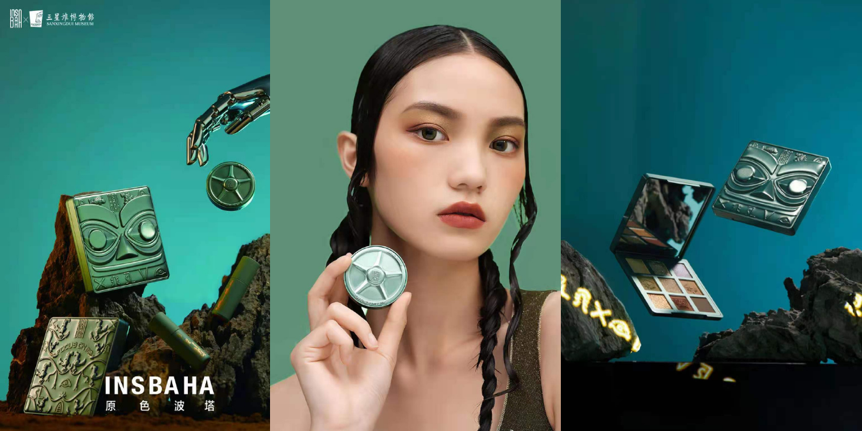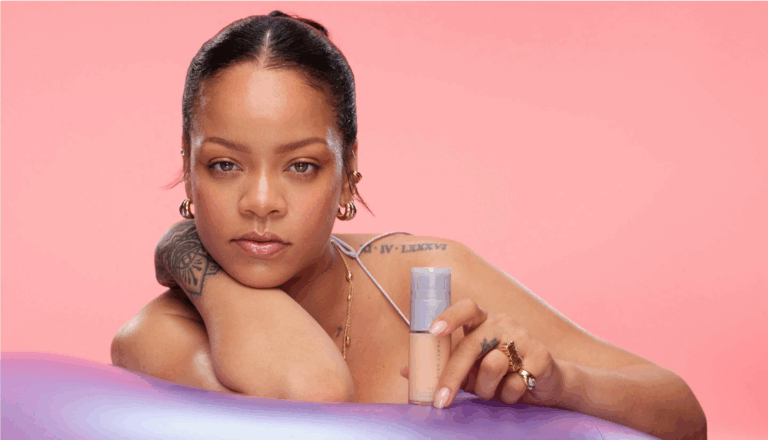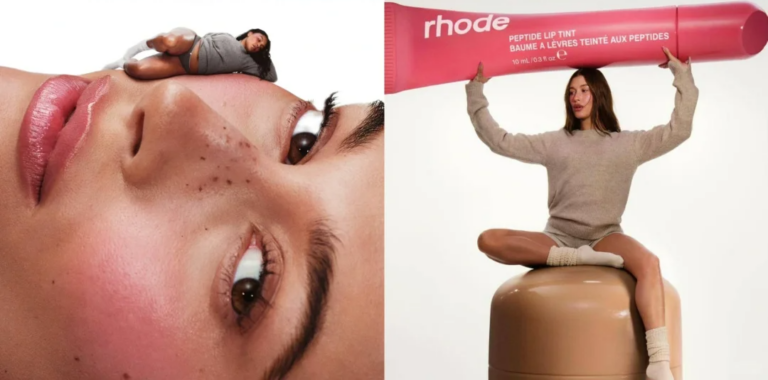On July 12th the Chinese make up brand INSBAHA (原色波塔) released their new collaboration with the Sanxingdui Museum (三星堆博物馆) on all their Chinese social media accounts.
INSBAHA is a make-up brand founded by a Chinese cosmetics company, Proya Cosmetics (珀莱雅), which targets ‘health nuts and trend lovers.’ The Sanxingdui Museum is located near Chengdu and is famous for its relics and antiquities. This collaboration is part of a ‘local flavor make-up’ cosmetics line where the Museum and INSBAHA have taken on the challenge to promote the Chinese cultural heritage through the crossover of make-up and cultural relics. The products of this collaboration include an eyeshadow palette, two lipsticks, and a blush inspired by the bronze objects such as the bronze God tree, and the bronze sun wheel displayed in the Sanxingdui Museum.
(Check our China Paradigm interview on How foreign cosmetics and skincare brands in China can succeed.)
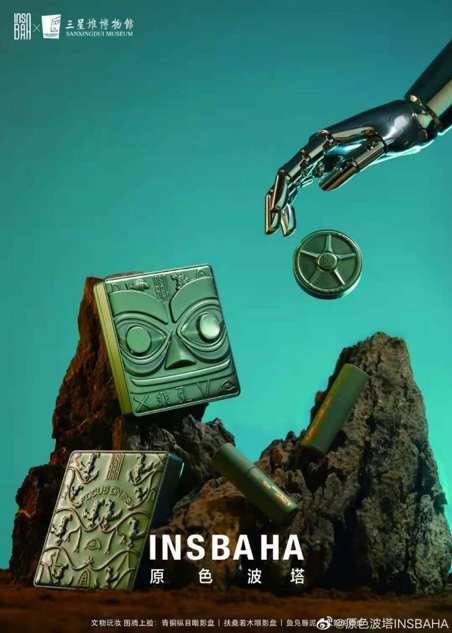
This collaboration is particularly interesting as it combines striking cultural elements and modern products. The campaign helped INSBAHA to become hot on Weibo in a short time and attract the attention of young consumers looking for freshness and originality. Since the release of the campaign, the hashtag #三星堆出土味彩妆 (Sanxingdui’s unearthed make-up) has been viewed 46 million times and discussed by 11 thousand people on Weibo.
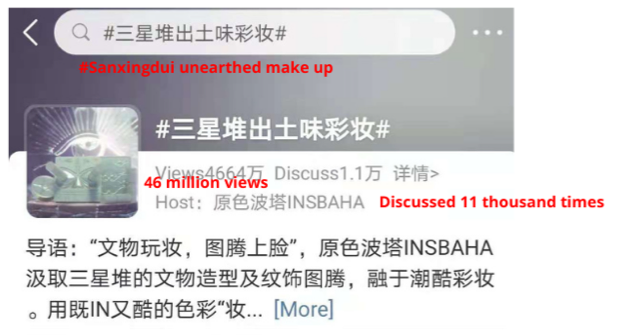
The ad was really well received by netizens and praised the Sanxingdui Museum for wanting to share their relics with Chinese people.
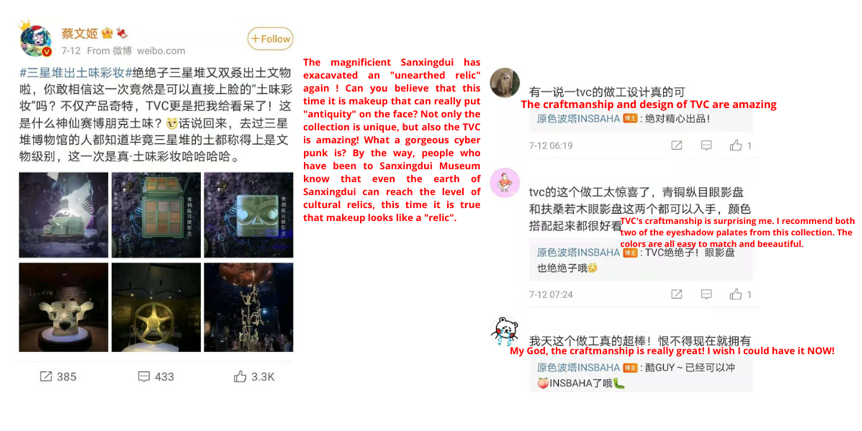
The INSBAHA ad is set in the year 2150. It’s a story of human beings who are used to living under a mechanical shell and therefore have lost touch with their true selves. The futuristic characters embark on a journey to find the “bronze treasures” (Sanxingdiu relics).
This ad is a blend of technology + futurism + cyberpunk, which is not only avant-garde but also consistent with the Gen-Z’s tastes.
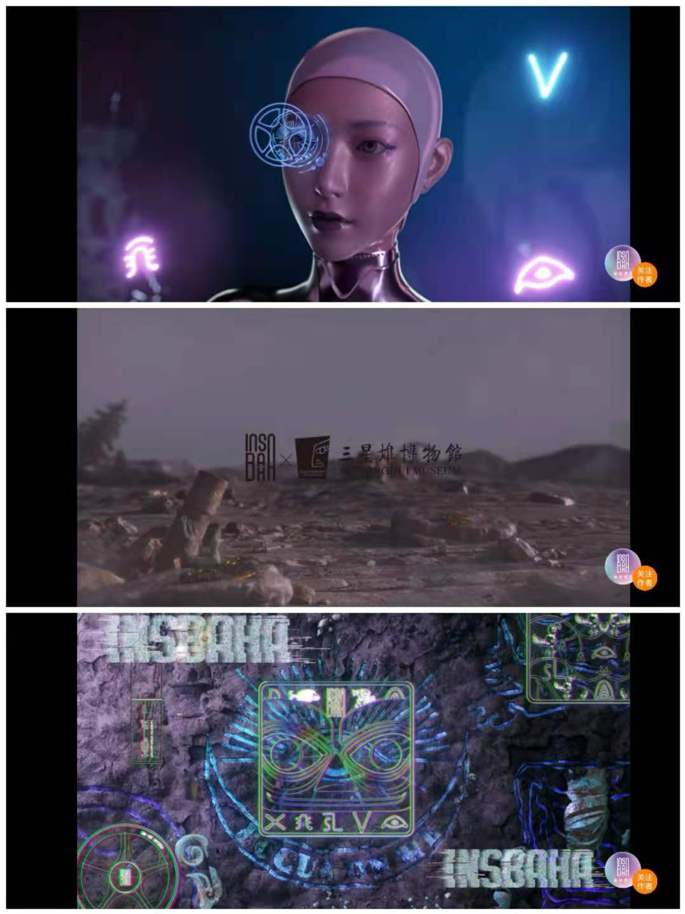
INSBAHA x Sanxingdui Museum campaign combines the latest marketing trends in China. First, they used Guochao marketing to ignite national pride. Second, the focus was on using virtual icons to represent and advertise their products.
Author: Oriane Corral


